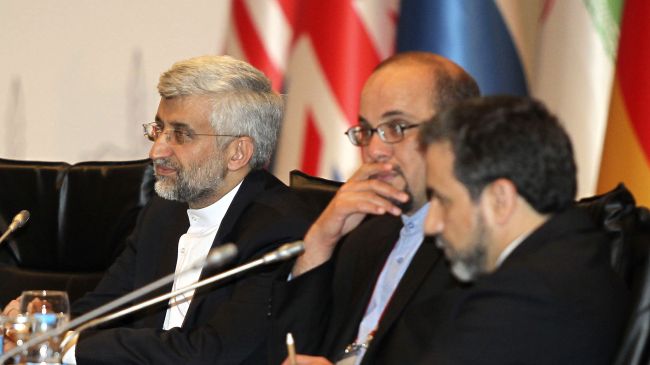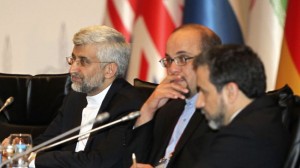
Mixed Signals Ahead of Iran Talks
 On Wednesday officials from the IAEA are expected to meet with their Iranian counterparts in Tehran in a renewed effort to resolve outstanding issues surrounding the Iranian nuclear program. Of particular interest to the IAEA is gaining access to the Parchin military complex, which the watchdog agency believes may have been the site of possible nuclear weapons-related experiments in the past.
On Wednesday officials from the IAEA are expected to meet with their Iranian counterparts in Tehran in a renewed effort to resolve outstanding issues surrounding the Iranian nuclear program. Of particular interest to the IAEA is gaining access to the Parchin military complex, which the watchdog agency believes may have been the site of possible nuclear weapons-related experiments in the past.
Negotiations between Iranian officials and representatives of the P5+1 are also scheduled to resume on February 26 in the city of Almaty, Kazakhstan. Referring to the impending meeting, Secretary of State John Kerry stated, “The international community is ready to respond if Iran comes prepared to talk real substance and to address the concerns… about their nuclear program.”
Yet, amidst these negotiations has come mixed signals from Iran.
Last week Iran announced plans to install more advanced centrifuges in its Natanz facility, and today signaled it has already begun implementing this plan. These new IR2-m centrifuges can enrich uranium faster and more efficiently. If installed successfully, these centrifuges could reduce the amount of time to enrich enough uranium for a nuclear weapon, should Iran decide to do so.
While Western officials call the development “disturbing,” there is also a more positive signal. Iran has announced that it has begun to convert small amounts of its higher-enriched material into fuel for its research reactor. Once converted it is difficult to reuse this material for a nuclear weapon.
The conversion slows the growth of Iran’s stockpile of 20 percent enriched uranium, material that is closer to the level of enrichment necessary for a nuclear weapon. Iran’s move may ease tensions, improving prospects for negotiations. .
Indeed, despite these mixed messages there is still time and space for a negotiated solution to the standoff.
Secretary Kerry reaffirmed this, stating that during the upcoming February 26th meetings “We are prepared to let diplomacy be the victor in this confrontation over their nuclear program.”
Likewise, during his State of the Union speech President Obama declared that “the leaders of Iran must recognize that now is the time for a diplomatic solution, because a coalition stands united in demanding that they meet their obligations…”
The Kazakhstan meeting may not lead to a comprehensive deal on Iran’s nuclear program, but it does present a good opportunity for Iran and the international community to take small steps towards a solution through confidence-building measures.






[…] Mixed Signals Ahead of Iran Talks […]